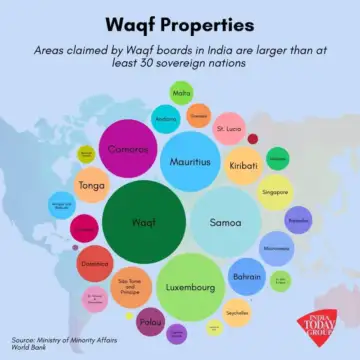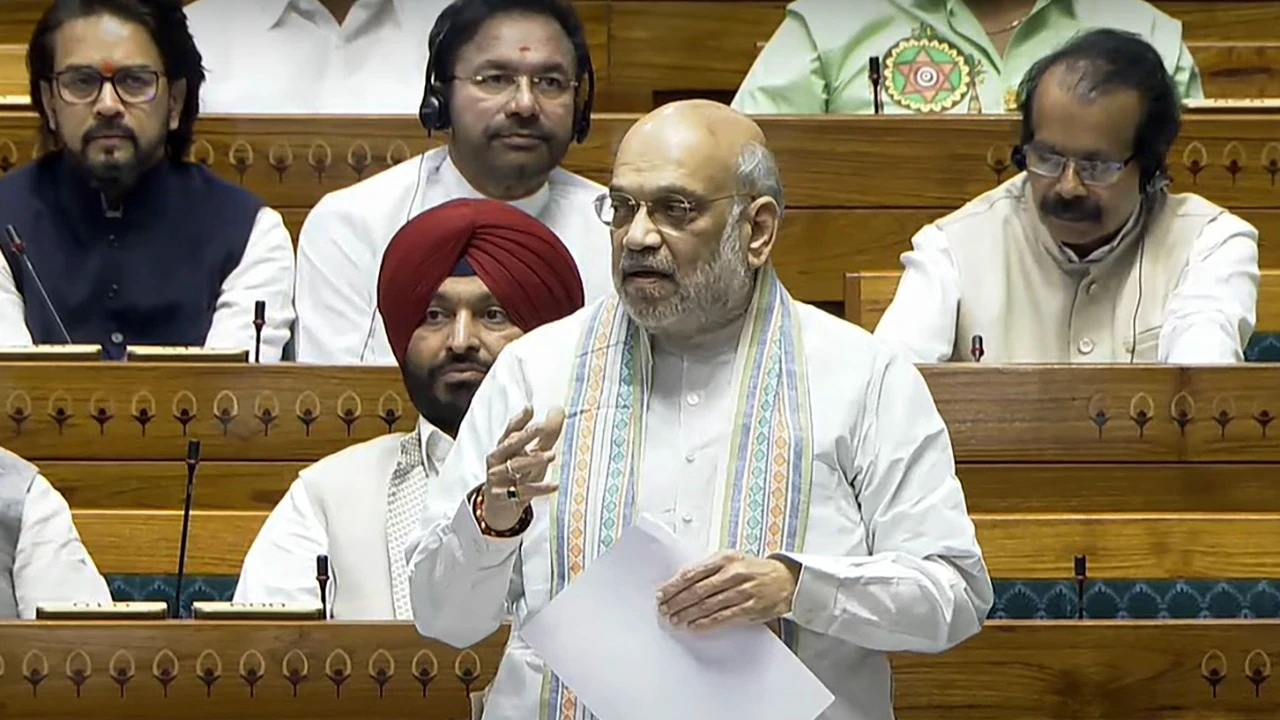The at the end of the 12th century and has now grown to 39 lakh acres. What is noteworthy is that the combined land under Waqf boards in India has more than doubled in the last 12 years.
The data on the growth in Waqf land was revealed by Home Minister Amit Shah on Wednesday evening during the debate on the Waqf Amendment Bill, 2024.
Kiren Rijiju in the Lok Sabha earlier on Wednesday.
“From 1913 to 2013, the Waqf Board had a total of 18 lakh acres of land. Between 2013 and 2025, after the Congress-led UPA amended the Waqf Act in 2013, 21 lakh acres were added to it,” Shah said in the Lok Sabha.
“Out of the total 39 lakh acres, 21 lakh acres were added after 2013. And now they are saying that there has been no misuse,” Shah said, referring to the year when the Waqf Act of 1995 was amended for better management of Waqf properties.
According to earlier government data, Waqf boards in India .
Waqf refers to properties that have been donated for religious or charitable purposes under Islamic law. Once donated by the wakif (donor), the ownership of the property is transferred and detained by Allah. Proceeds from the property are for the use of the community and the sale of such assets is prohibited.
There are 30 Waqf Boards across India, according to the official website of the Waqf Asset Management System of India.
AMIT SHAH HIGHLIGHTS MISUSE OF WAQF PROPERTIES
The Waqf Act and its 2013 amendment have been criticised for inefficacy, leading to issues like encroachment, mismanagement, ownership disputes, and delays in registration and surveys, according to a government note issued in 2024.
Shah spoke about the and their misuse by a few.
“The leased Waqf Board properties were 20,000, but in 2025, as per records which might be wrong, these properties became zero. Where did these properties go? With whose permission were they sold,” he questioned.
According to government data, Waqf Boards are among the top three owners of land in India along with the Armed Forces and the Indian Railways.
The amount of land with the Waqf Boards in India would place it above 30 sovereign nations, shows a research by India Today’s Data Intelligence Unit (DIU).
ROW OVER WAQF LAND CLAIMS, LACK OF JUDICIAL RECOURSE
There has been much debate and controversy over what has been claimed as Waqf land in India.
Among the land claimed as Waqf property is a 1,500-year-old Chola temple in Tamil Nadu, a and a 5-star hotel in Karnataka.
BJP leaders say that the “misuse” of Section 40 has resulted in widespread conversion of private properties into Waqf properties, and triggered a communal divide in the country.
Rijiju called because it didn’t permit appeals in courts and the verdict of Waqf Boards and Tribunal was deemed final.
Shah spoke about the arbitrariness of the Waqf Act, 1995, which didn’t leave scope for appeal in regular courts.
“Under the present Act, the decisions of the Waqf Tribunal are final and there is no provision to appeals against its decisions,” Shah said.
“[Congress MP Gaurav] Gogoi was saying that you could approach the High Court. Civil suits don’t go to a High Court. You can use the provisions of writ and approach a high court. More protection is given to mool maalik (principal owner) in civil suits. You had finished civil suits. The jurisdiction of writ is limited. We know all this, you know this as well. But you want votebank politics,” Shah added.
WAQF AMENDMENT BILL WILL BRING TRANSPARENCY: SHAH
Shah said the Waqf Amendment Bill — renamed UMEED Bill, Unified Waqf Management Empowerment, Efficiency and Development Bill — would ensure .
He said reports and balance sheets would be submitted, and retired CAG officers would audit them.
“Why should anyone be afraid of transparency? And any order of the Waqf Board or Council can also be taken to court,” he added.
Waqf properties need better and transparent management that benefits Muslims. What is noteworthy is the growth in land owned by Waqf Boards — from 18 lakh acres in 2013 to 39 lakh acres in 2025. An astounding addition of 21 lakh acres in the last 12 years, since the Waqf Act was amended in 2013.

мостбет официальный сайт http://mostbet6008.ru .
Профессиональный сервисный центр по ремонту бытовой техники с выездом на дом.
Мы предлагаем:сервисные центры в москве
Наши мастера оперативно устранят неисправности вашего устройства в сервисе или с выездом на дом!